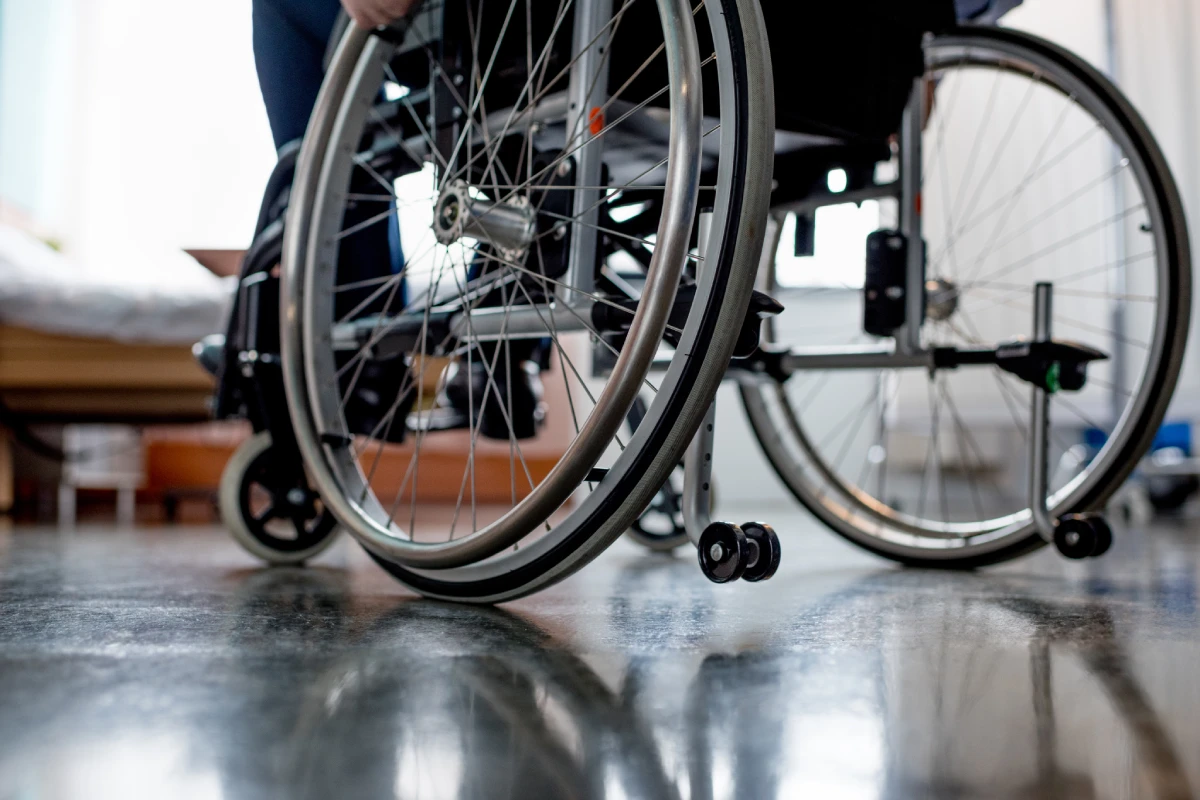The Process - Social Security Disability Benefits
Applying for Social Security disability benefits can often be frustrating and confusing. It involves lots of paperwork and the vast majority of claims are denied at the early stages. The experienced and professional staff at Rob Levine Law will assist you throughout the Social Security process, no matter what stage your claim is at.
Initial Claim Application
The initial claim application is filed at the local Social Security office. Among other things, you will need to provide detail on all of your medical treatment, as well as your work history for the last fifteen years. Once the application is complete it is sent to Disability Determination Services (DDS), the government agency responsible for processing disability claims. DDS gathers your medical records and a team of medical and vocational personnel review your file and issue a decision.
After all of your medical records arrive, a DDS worker (called an examiner) sends your records to a medical consultant. The medical consultant, usually an M.D. or Ph.D., will review the records and come up with your residual functional capacity (RFC). The RFC is a medical opinion that identifies what you can do and for how long.
An RFC for a physical impairment will estimate how long you can sit, stand and walk for in an 8-hour workday. It will also include an opinion of how much weight you can lift and carry occasionally and frequently. Occasionally is defined as up to 1/3 of the workday and frequently is defined as from 1/3 – 2/3 of the workday.
The least physical jobs are sedentary jobs (desk jobs). In order to be capable of performing sedentary work, you must be able to sit for approximately 6 hours and stand and/or walk for at least 2 hours in an 8-hour workday. Sedentary work does not involve a lot of lifting and carrying. Generally you do not lift more than 10 pounds at a time at a sedentary job. The more weight you are capable of lifting, the more physical the job.
Light work requires the ability to lift and carry 10 pounds frequently, and 20 pounds occasionally. If you are able to lift and carry up to 50 pounds occasionally and 25 pounds frequently, then you are capable of medium work. Heavy and very heavy work involves jobs lifting up to or more than 100 pounds. Construction work is can be characterized as heavy or very heavy work.
A physical RFC also rates your postural limitations, including climbing, balancing, stooping, kneeling, crouching and crawling as well as manipulative limitations such as reaching, handling, fingering, and feeling. Visual limitations, communicative limitations, and environmental limitations like exposure to extreme heat, extreme cold, wetness, humidity, noise, vibration, fumes, and hazards are also assessed by the medical consultant.
A Mental RFC lists the degree of impairment found in various non-exertional capacities such as memory, concentration and socialization. The medical consultant will offer an opinion in the areas of understanding and memory, sustained concentration and persistence, social interaction and adaptation. Marked impairment in these areas will generally preclude work activity.
The Social Security Administration also recognizes that the inability to perform basic work-related mental activities such as understanding, carrying out, and remembering simple instructions; using judgment in making work-related decisions; responding appropriately to supervision, co-workers and usual work situations; and dealing with changes in a routine work setting warrants a favorable decision in your case. Unfortunately, RFC forms completed by DDS medical consultants are rarely of any benefit to you. At DDS, RFC forms are used to facilitate denials significantly more often than approvals. That’s why it’s important to get your treating doctor to fill out an RFC form you.
At Rob Levine Law, we have created forms for your doctor to complete, which provide us with the necessary medical evidence to establish your disability under the Socail Security rules. Your treating physican’s opinion on your inability to perform work activity is the best way to refute the RFC assessments made by the DDS medical consultants. After all, your doctor is in the best position to comment on your limitations. He or she has had the opportunity to get to know you over a period of time. And more significantly, unlike the DDS medical consultant, your doctor has examined you!
Social Security gives substantial weight to the opinion your treating physician as long as the opinion is consistent wnd well-supported by the other medical evidence associated with the case. A statement by your doctor simply saying that you are disabled will not suffice. Whether you are disabled or not is a determination reserved to the Social Security Administration. Instead, it is necessary for your doctor to identify limitations resulting from your medical condition, which, in turn, can be used in assessing whether those limitations prevent you from working.
Once your limitations have been identified, your file will be evaluated by a vocational expert. Vocational experts study jobs in order to understand their physical and mental requirements. They are qualified to determine the exertion and skill levels of various jobs and the industry-standards for many occupations. At step 5 of the sequential evaluation process, the vocational expert identifies whether other jobs exist in the national economy that you can perform despite the limitations contained in your RFC.
You should expect to receive a denial of your claim at this level. Statistically, the overall majority of claims are denied. If you receive a denial, you should appeal. Social Security requires that you file the appeal within 60 days. If you miss the deadline, you will have to file another initial claim application and could lose benefits. In most states, you need to file a request for reconsideration to appeal.
Reconsideration
When a claim for Social Security disability benefits is denied at the initial claim level, most claimants must request a reconsideration of that decision to start the appeal process. It’s called a reconsideration because the same state agency that issued the denial at the initial claim level reevaluates your claim again. The case is sent to a different DDS examiner for a new decision. It follows the same process again and about 80% of the time the reconsideration decision is the same as the initial decision- a denial.
After receiving a reconsideration denial, the next step is to request a hearing. Again, you have only 60 days to appeal and if you miss the deadline you have to start all over again. Notably, Alabama, Alaska, Colorado, Louisiana, Michigan, Missouri, New York, Pennsylvania, and North and West Los Angeles have abolished the reconsideration level. Appeals of claims processed in these locations go right to the hearing level after the initial claim denial.
A lot of people who do not have an attorney give up their claim after they receive a reconsideration denial. In large part this is because the thought of attending a hearing is intimidating to most people. However, most cases are approved at the hearing level. That said, having good representation at your hearing is important because overcoming an unfavorable hearing decision can be extremely difficult.
Hearing Level
While most cases are approved at this level, this is also the stage that has the longest wait. Because so many people have to have a Judge review their case before they are awarded Social Security disability benefits, this is the place where your case sits the longest. Often it is difficult to do much to push your case along at this level, because there are so many other urgent cases in line in front of you.
Your attorney can submit new evidence and written statements on your behalf in hopes of securing a favorable decision with a hearing. Efforts are being made by the Social Security Administration to process claims quicker, including holding video hearings and using Senior Staff Attorneys to adjudicate claims prior to a hearing. However, your case can still take approximately two years to make its way through the system.
If a hearing becomes necessary in your case, you will be required to attend the hearing with your attorney. The hearing is informal and not held in a traditional courtroom. A Social Security hearing is private, no one from the public can observe. However a recording of the hearing is made to preserve the record in case you need to appeal.
It’s generally not a good idea to have family or friends testify on your behalf because a Judge would expect your witness to say what they could to help you. Besides, this is a disability determination. It’s the medical evidence associated with your case and the opinions of your doctors that is most meaningful.
At the hearing, the Judge will hear your testimony and consider the evidence associated with your file. The Judge may ask a vocational expert and/or a medical expert to give testimony. Your attorney will have the opportunity to question you, as well as any experts testifying. You will likely not know the outcome of your case until the Judge issues a written decision after the hearing.
If the decision is unfavorable, in most cases you can file an appeal within 60 days to the Appeals Council.
Appeals Council
When the hearing decision is appealed, the Appeals Council will review the decision to determine if the Judge made any mistakes while adjudicating your claim. The Appeals Council will reverse or confirm the Judge’s decision, or remand the case back to the Judge for another hearing.
The Appeals Council is headquartered in Falls Church, Virginia with additional offices in Baltimore, Maryland and Crystal City, Virginia. It is responsible for overseeing the appeals of all of the unfavorable hearing decisions issued nationwide. Submitting additional evidence and/or comments with the request for review can shorten the review process at this level. From start to finish, it can take as little as six months and as long as three years.
Federal Court
If the Appeals Council upholds the Judge’s unfavorable decision, your case may warrant an appeal to Federal Court. You would need to file a civil suit in a federal district court. If you bring a civil action seeking judicial review of the Social Security Administration’s (SSA’s) final decision, there is a fee for filing a civil action in Federal court. Your attorney will review whether this course is appropriate on a case-by-case basis.
About Rob Levine Law
If you or a loved one has been injured and needs legal help, please contact Rob Levine Law for a free consultation. Our Fee Free Policy means that you do not pay unless you win. Our experienced personal injury lawyers will review your case to help you understand what your next steps should be. Getting legal help can ease your mind and let your focus on getting better.
At Rob Levine Law we are experienced in personal injury cases in Rhode Island, Massachusetts, Connecticut, and New Hampshire. We are also experienced with social security and veteran’s disability cases nationwide. Our team is available 24/7 to help you. Contact us at 800-742-3940 or visit our website for more information.






